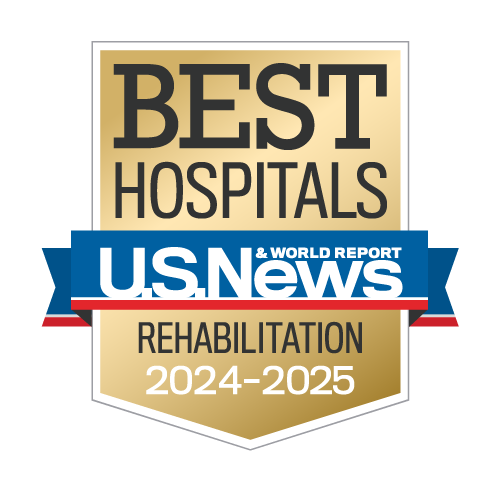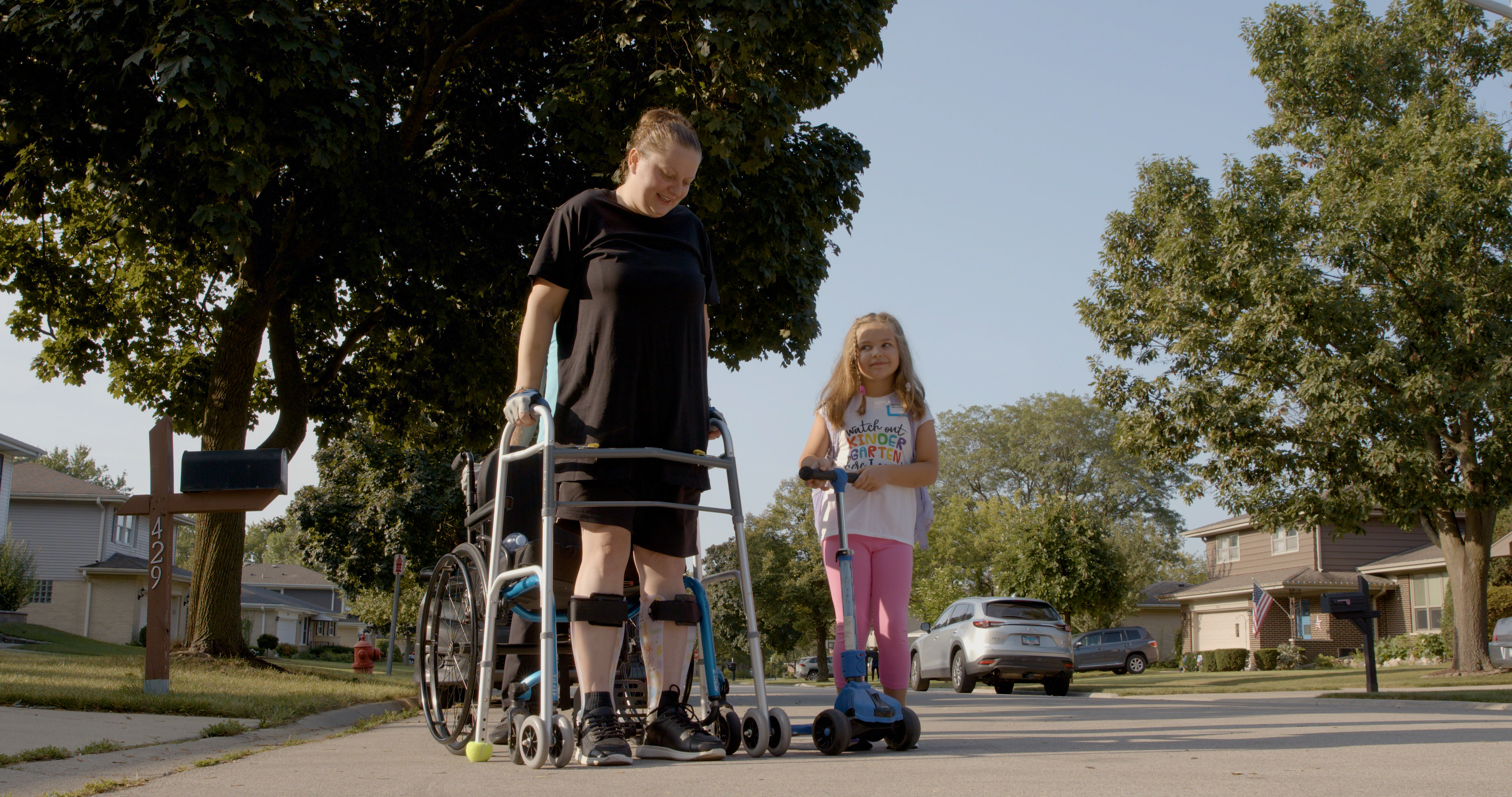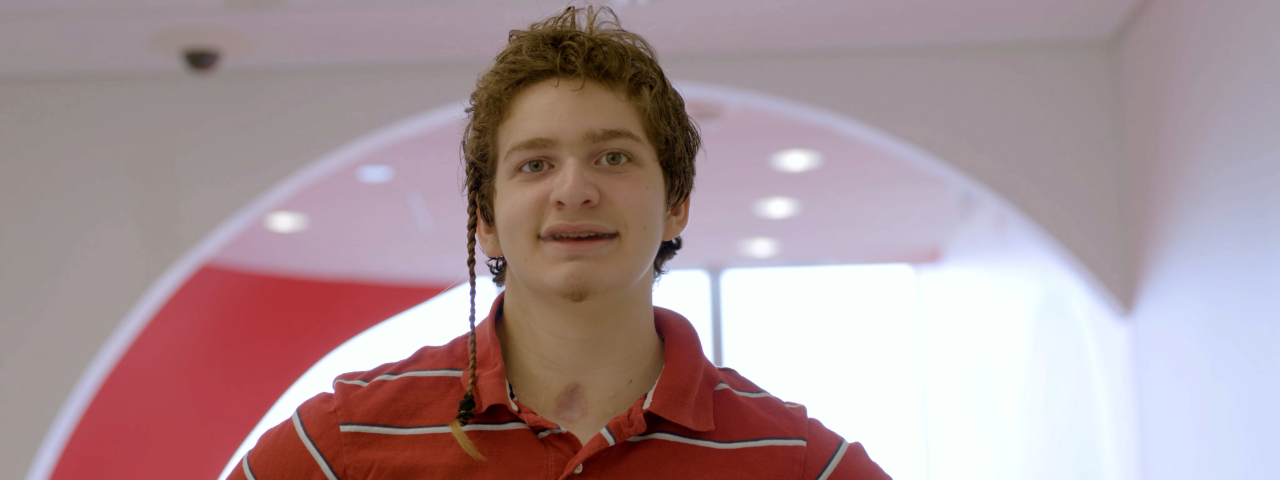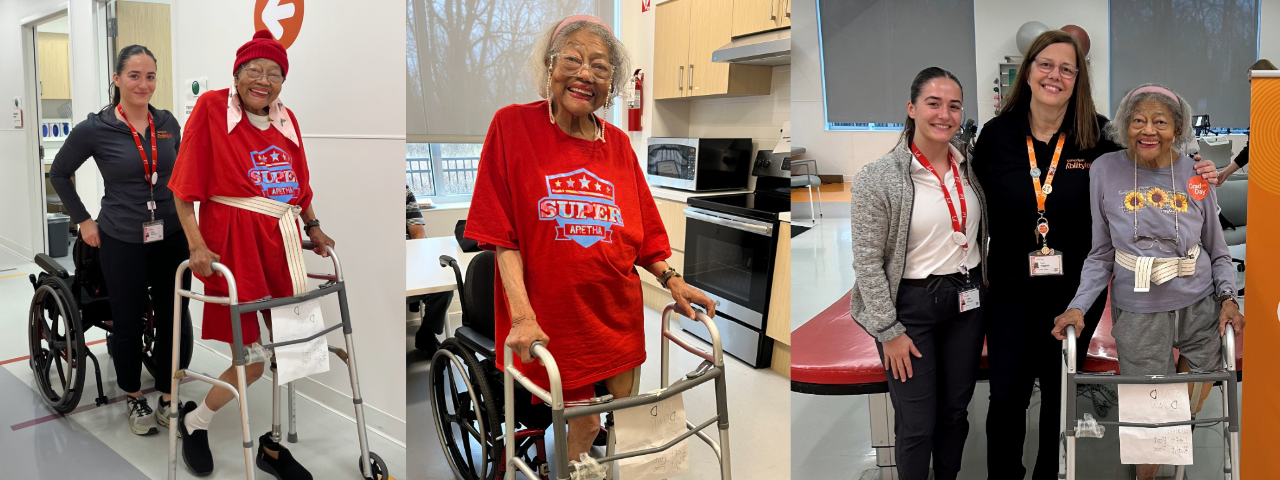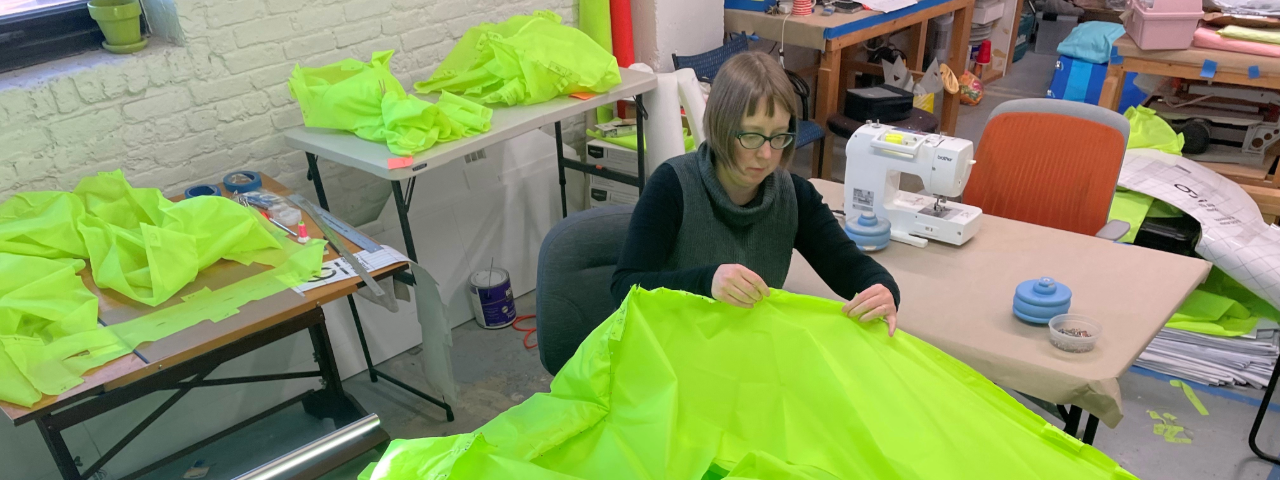#1 for 34
Consecutive Years
How Can We Help?
Patients from around the world choose us for acute rehabilitation. Our hospital is designed to treat the whole patient – physically and mentally. See all the Conditions + Services offerings.
What Sets Us Apart?
Choosing the right rehabilitation partner is vital to achieving your best outcome.
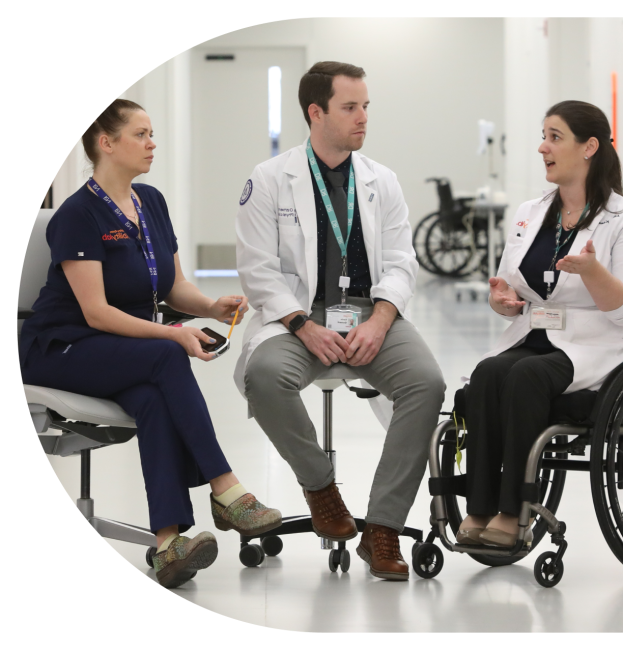
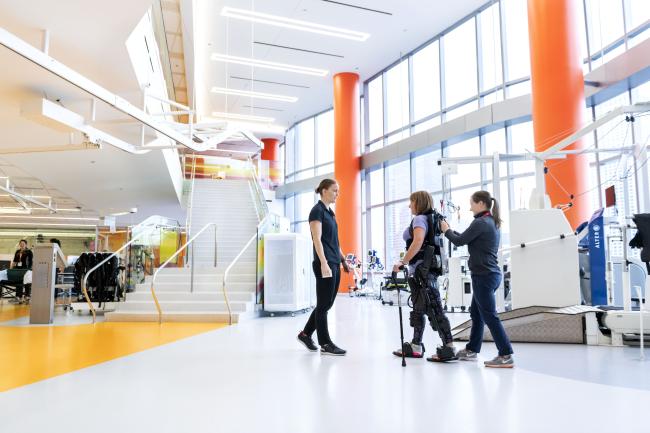

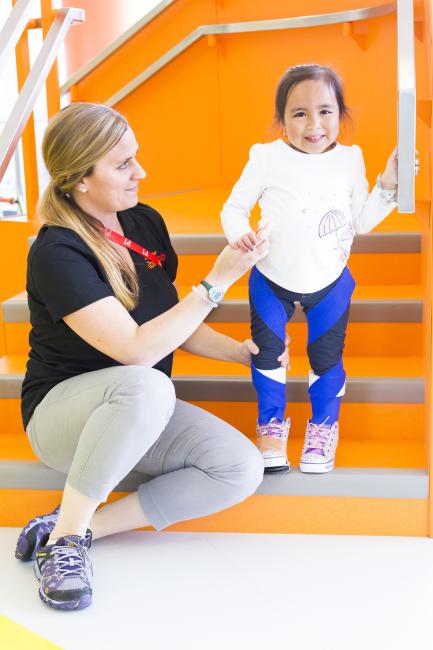




Why Choose Us?
Our new research hospital serves our patients in ways that are unprecedented in medicine.
-

We treat more patients for stroke, spinal cord injury and brain injury than any other rehabilitation hospital.
-

Our patients report better functional improvements for self-care and mobility than the national average.
-

Over 50% of our therapists have advanced certifications beyond their Master’s and PhD’s.
Patient Stories
At Shirley Ryan AbilityLab, you’ll become part of a thriving medical-research community that will champion and celebrate your successes. We’ll help you achieve your best outcome, faster.
Clinical Trials
Research fuels our passion and informs our patient care. See if you quality for one of our studies.
Accepting Patients
Research Survey: Answer questions about your experience receiving Home and Community-Based Services (HCBS)
The purpose of this study is to test a set of surveys designed to determine if Home and Community-Based Services (HCBS) are person-centered. HCBS are services that help people with disabilities or older adults to live in the community and are paid for by Medicaid.
Accepting Patients
Modulating stimuli intensity to improve clinical outcomes in aphasia treatment
We are conducting a research study that will help us understand how to better schedule speech and language therapy. The therapy can be done from home on either your personal computer or laptop that we will lend to you.
Accepting Patients
Improving Adherence to Spinal Cord Injury Exercise Guidelines Using Smartphone-Based Technology and E-coaching: A Proof-of-Concept SMART-Design Study
Trial of an SCI-specific smartphone exercise app for a 2-week period and providing feedback.
Accepting Patients
Brain-Based and Clinical Phenotyping of Pain Pharmacotherapy in Knee Osteoarthritis (PREDICT)
This is a clinical trial of people who have pain due to knee osteoarthritis at Northwestern University Feinberg School of Medicine in collaboration with Shirley Ryan AbilityLab. The study will last for about 20 weeks. 180 qualified participants will be randomly assigned in a 1:1:1 ratio (60 participants per group) to one of three treatment groups: duloxetine, celecoxib or placebo. Participants will have an X-ray, knee MRI, brain MRI, blood draws, pain sensitivity testing and will be asked to fill out questionnaires. The purpose of this study is to predict which participants will respond to the treatment.
Accepting Patients
Effects of twice-daily dosing 4-AP on Functional Recovery after Spinal Cord Injury
Our studies aim to investigate potential Neuro-modulation Therapies with the help of an FDA approved drug in individuals with spinal cord injuries.
Shirley Ryan AbilityLab Speech-Language Pathologist, Patient Featured in WBEZ Chicago Story about Long COVID
Five years after the height of the COVID-19 pandemic, approximately 1 in 5 adults continue to have a health condition that might be related to their previous COVID illness, according to the Centers…
view all newsMeet Baby Harvey: A Year in the Life with Cerebral Palsy
Harvey S. was only four months old when he traveled with his parents, Michele and Jake, from Virginia to Shirley Ryan AbilityLab in Chicago. He was diagnosed with cerebral palsy (CP) and soon began inpatient “habilitative therapy” — a type of therapy geared toward developing new skills, often used in children with chronic conditions.
Ask the Expert: Traumatic Brain Injury with Amy Basken, Patient Parent & Caregiver
To recognize Traumatic Brain Injury (TBI) Awareness Month, we invited patient parent and caregiver Amy Basken to answer audience questions for our monthly “Ask the Expert” series. After her son, Matthew, experienced a TBI, he came to Shirley Ryan AbilityLab for rehabilitation. Now, three years later, Amy shares her experiences and reflections as the mother of a person living with a TBI.
